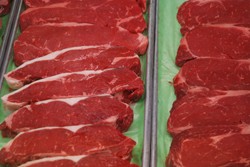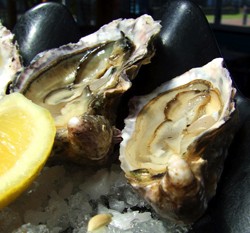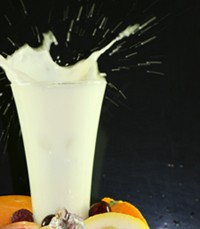6 Common Food Myths
Perhaps your parents told you that dairy is the best solution for healthy bones or the TV warned you that eggs increase your cholesterol.
Regardless of what you’ve been told, such myths are untrue (or a skewed version of the truth). For your enjoyment and education, we’ve selected six food myths that still make the rounds to this day and explain why they’re wrong.
1. Eggs cause high cholesterol
First of all, yes, eggs do contain cholesterol – primarily in the yolk. However, this does not matter. You see, cholesterol contained within in food is not what causes cholesterol in people. The actual culprits of this are saturated and trans-fats.
If you are currently suffering from high cholesterol, it’s still okay to have a couple of eggs each week. Just make sure you’re not mixing them with foods rich in saturated and trans-fats.
2. Meat is the only good source of protein

While it is known that almost any meat will give you a good intake of protein, some people are still sceptical that other foods do. However, plant foods such as nuts, seeds, grains and legumes all have good protein levels. Also don’t forget mushrooms – they’re a great go-to source for protein.
3. All fats are bad fats
No. Of course there are fats that will increase cholesterol and substantially attribute to weight gain and other health issues, but healthy fats are vital to a good life. In fact, such healthy fats help reduce the risk of heart disease and cancer. Monounsaturated and polyunsaturated fats are examples of good fats. So don’t write off all fats as detrimental to your health.
4. Oysters have an aphrodisiac quality

People claim that oysters increase the sex drive, but this isn’t actually true. While oysters do contain zinc which is linked to the sexual hormone, it doesn’t have any influence on the libido which fuels a person’s sex drive.
5. Fresh vegies are better than frozen
While we’re not debating the quality of fresh vegetables, there is a bit of misinformation when it comes to fresh vs frozen. Simply put, frozen vegetables typically have just as much nutritional worth as fresh ones.
This is because frozen vegetables are frozen almost immediately after being picked. And as discussed in a blog of ours concerning frozen food, freezing essentially stops all foods from aging and losing their nutritional worth – including vegetables.
6. Dairy is the best option for healthy bones

Milk and cheese are both dairy products that contain calcium and Vitamin D (both of which are great for healthy bones). However, they’re not the only option. Dark leafy greens also contain calcium and vitamin K, which is also good for bones but dairy doesn’t have. Also, Magnesium plays a big role and can be found in things such as cashews and potatoes but not in dairy.
Got any other myths you’d like to share with us? Pop them in the comments below.